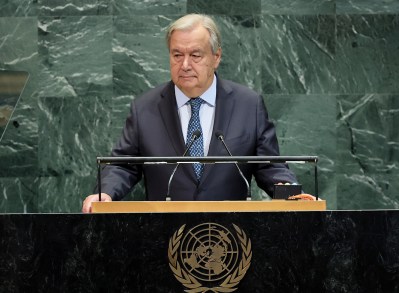The United Nations is falling apart
As the world’s leaders and foreign ministers meet in New York for the United Nations General Assembly (UNGA) this week, recognition of a Palestinian state is being paraded as progress towards peace. In reality, it is nothing of the sort. It only confirms what has become increasingly obvious to anyone watching the UN over the past eight years: that the organisation is in a state of malaise and its secretary-general, Antonio Guterres, the embodiment of its decline. The UN is no stranger to dysfunction, which I saw first-hand as a security council counter-terror coordinator for five years. Every secretary-general has faced allegations of irrelevance, hypocrisy or incompetence. But Guterres stands




















